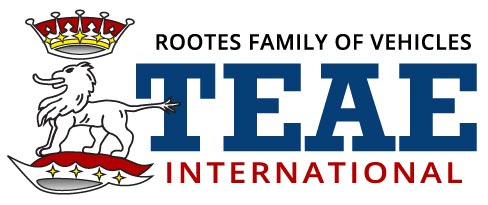- This topic has 9 replies, 9 voices, and was last updated August 31, 2011 at 3:27 am by
Bob and Jean Webb.
-
AuthorPosts
-
-
May 23, 2011 at 3:44 pm #57711
Does anyone have a recomendation for someone who rebuilds stock brake boosters – thanks george
-
May 24, 2011 at 11:43 am #64067
White Post Restorations in Virginia, Good job but a little $$$. 8)
-
May 24, 2011 at 9:57 pm #64069
Does Tiger Tom still do them? Eric
-
June 4, 2011 at 3:51 pm #64085
-
June 13, 2011 at 10:05 pm #64096
Randy Willet in New Hampshire if Tiger Tom is too busy.
-
July 20, 2011 at 1:14 am #64159
This is really a piggy-back on this thread. I read recently how someone used a kaput booster (for looks) and ran the brakes right through the booster and left them non-power. What is this technique ? Sounds like something I would like to copy. Help ? Bob
-
July 20, 2011 at 2:47 pm #64160
Without the booster the stock brake master cylinder gives an extremely hard pedal. You almost have to standon them in a panic situation. I know, my Tiger was like that for 25 years.
Find a Series II Alpine brake master cylinder and swap it for the stock one. The brakes are not soft with this set-up but the pedal will travel much further than the stock set-up even with the booster.
Then you can leave the booster in the car, bypass it with a connector to mate the booster in and out lines. I did this and the brakes are great. Takes some getting used to the softer pedal, though.
Fred Baum
-
August 30, 2011 at 1:17 pm #64200
Hi Fred,
I want to second your comment about using a series II master cylinder. ( I think it can be a series I cylinder too.)If I recall it has a bore diameter of 5/8" (.625") which is smaller than the later cylinder used with the booster. The smaller bore gives you higher line pressure than the bigger cylinder , with the trade off being slightly longer travel. I have driven my 66 Alpine like this for many thousands of miles and quite like the brakes.
If I recall when I bought the new earlier cylinder back in the days from Doug Jennings it came with a different pushrod. I think it is necessary to use the original pushrod but you will find that the heavy washer which goes under the circlip at the back of the master cylinder is of course slightly larger than will fit on the new cylinder and the washer is trapped onto the shaft of the original pushrod. I remember reducing the diameter of the washer by holding its edge against an electric grinding wheel and letting it rotate against the wheel. If you hold the pushrod steady you can take off a controlled amount of metal from the circumference of the washer until it is a comfortable fit into the new cylinder. This sounds a little funny to do but worked fine.
And hey, if you are not shooting for concours leave off the bad booster and have a little more room under the hood.
Dave Reina
-
August 30, 2011 at 3:16 pm #64202
Dave-
If I remember correctly I got the master cylinder with the pushrod already installed and did not have to make any modifications. I agree with you about the washer and letting it rotate around on a grinding wheel. I have done that with other projects with great success. Once down to the correct diameter I use a file to smooth out any imperfections and burrs that may have built up.
Fred
-
August 31, 2011 at 3:27 am #64205
i take the booster apart and weld plugs in the cylinders and also make sure all other openings are welded up except for where the brake lines attach. then just assemble the empty can to the housing, mount it where it goes and hook up the brake lines. i use the .700 master from series 2 alpines. i usually buy them from pegasus. all of my alpines have this setup. i’m working on doing the same thing to the clayton dewandre booster on the harrington we bought a few months back.
-
-
AuthorPosts
- You must be logged in to reply to this topic.


